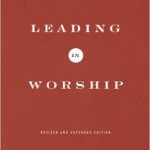
In 1651 a collection of pastors in Scotland came together a drew up “an humble acknowledgment of the sins of the ministry.” They sensed God’s judgment upon the country and viewed themselves as no small part of the problem. Horatius Bonar called the subsequent ministerial confession “one of the fullest, most faithful and most impartial confessions of ministerial sin ever made.”
I’d have to agree with Bonar—I’ve never read anything like this before yesterday. Rarely could I go a few sentences into the document without pausing to examine my own life and repent of sin (it thus took a long time to get through it!). I’ve copied a substantial excerpt below and encourage you to read prayerfully and humbly. It may just be the most challenging reading you encounter this week.
Before Entering the Ministry
Lightness and profanity in conversation, unsuitable to that holy calling which they strove for, not thoroughly repented of. Not studying to be in Christ before they be in the ministry; nor to have the practical knowledge and experience of the mystery of the gospel in themselves before they preach it to others. Neglecting to fit themselves for the work of the ministry, in not improving prayer and fellowship with God, opportunities of a living ministry, and other means, and not mourning for these neglects. Not studying self-denial, nor resolving to take up the cross of Christ. Negligence to entertain a sight and sense of sin and misery; not wrestling against corruption, nor studying mortification and subduedness of spirit.
Entering the ministry without respect to a commission from Jesus Christ, by which it hath come to pass that many have run unsent. Entering the ministry not from the love of Christ, nor from a desire to honor God in gaining of souls, but for a name and for a livelihood in the world, in spite of a solemn declaration to the contrary when they became a minister.
After Entering the Ministry
Ignorance of God; lack of nearness with Him, and taking up little of God in reading, meditating, and speaking of Him. Exceeding great selfishness in all that we do; acting from ourselves, for ourselves, and to ourselves. Not caring how unfaithful and negligent others were, so being it might contribute a testimony to our faithfulness and diligence, but being rather content, if not rejoicing, at their faults. Least delight in those things wherein lieth our nearest communion with God; great inconstancy in our walk with God, and neglect of acknowledging Him in all our ways. In going about duties, least careful of those things which are most remote from the eyes of men. Seldom in secret prayer with God, except to fit for public performance; and even that much neglected, or gone about very superficially.
Glad to Find Excuses
Glad to find excuses for the neglect of duties. Neglecting the reading of Scriptures in secret, for edifying ourselves as Christians; only reading them just enough to do our duty as ministers, and ofttimes neglecting even that. Not given to reflect upon our own ways, nor allowing conviction to have a thorough work upon us; deceiving ourselves by resting in the fact that our hard conscience does not bother us, and looking upon the same as an evidence of a real change of state and nature.
Poor guarding of and watching over the heart, and carelessness in self-searching; which makes much unacquaintedness with ourselves and creates separation from God. Not guarding nor wrestling against seen and known evils. Easily drawn away with the temptations of the time, and other particular temptations, according to our inclinations and fellowship.
Instability and wavering in the ways of God, through the fears of persecutions, hazard, or loss of reputation; and declining duties because of the fear of jealousies and reproaches. Not esteeming the cross of Christ and sufferings for His name as honorable, but rather escaping from sufferings, due to self-love. Deadness of spirit, even after all the sore strokes of God upon the land. Little conscience made of secret humiliation and fasting, by ourselves apart and in our families, that we might mourn for our own and the land’s guiltiness and great backslidings; and little applying of public humiliation to our own hearts. Finding of our own pleasure, when the Lord calls for our humiliation.
Not laying to heart the sad and heavy sufferings of the people of God abroad, and the nonthriving of the kingdom of Jesus Christ and the power of godliness among them. Refined hypocrisy; desiring to appear what, indeed, we are not. Studying more to learn the language of God’s people than their practice. Artificial confessing of sin, without repentance; professing to expose iniquity, and not resolving to be sorry for sin. Confession in secret much slighted, even of those things whereof we are convicted. No reformation, after solemn acknowledgments and private vows; thinking ourselves exonerated after confession. Readier to search out and censure faults in others than to see or deal with them in ourselves. Accounting of our condition and way according to the estimation that others have of us. Our estimation of men depends on whether they agree with us or not.
Not fearing to meet with trials, but presuming, in our own strength, to go through them unshaken. Not learning to fear, by the falls of gracious men; nor mourning and praying for them. Not pointing out particular deliverances and punishments; not learning from them, for the honor of God and the edification of ourselves and others. Little or no mourning for the corruption of our nature, and less groaning under, and longing to be delivered from that body of death, the bitter root of all our other evils.
Fruitless conversations with others, for the worse rather than for the better. Foolish jesting away of time with impertinent and useless discourse, very unbecoming the ministers of the gospel. Spiritual purposes often dying in our hands when they are begun by others. Carnal familiarity with natural, wicked, and malignant men, whereby they are hardened, the people of God stumbled, and we ourselves blunted.
Loving Pleasure More than God
Slighting of fellowship with those by whom we might profit. Desiring more to converse with those that might better us by their money than with such as might edify us by their graces. Not studying opportunities of doing good to others. Shifting of prayer and other duties, when called thereto—choosing rather to omit the same than that we should be put to them ourselves. Abusing of time in frequent recreation and pastimes and loving our pleasures more than God. Taking little or no time to Christian discourse with young men trained up for the ministry. Common and ordinary discourse on the Lord’s Day. Slighting Christian admonition from any of our flocks or others, as being below us; and ashamed to take light and warning from private Christians. Dislike of, or bitterness against, such as deal freely with us by admonition or reproof, and not dealing faithfully with others who would welcome it off our hands.
Not praying for men of a different opinion, but using reservedness and distance from them; being more ready to speak of them than to them or to God for them. Not weighed with the failings and miscarriages of others, but rather taking advantage thereof for justifying ourselves. Talking of and sporting at the faults of others, rather than compassionate toward them. Not taking pains in religious ordering of our families, nor studying to be patterns to other families in guiding ours. Hasty anger and passion in our families and conversation with others.
Covetousness, worldly-mindedness, and an inordinate desire after the things of this life, upon which followeth a neglect of the duties of our calling, and our being taken up for the most part with the things of the world. Lack of hospitality and charity to the members of Christ. Not cherishing godliness in the people; being afraid of it and hating the people of God for piety, and studying to bear down and quench the work of the Spirit amongst them.
Trusting in Our Own Ability
Not entertaining that edge of spirit in ministerial duties which we found at the first entry to the ministry. Great neglect of reading, and other preparation; or preparation merely literal and bookish, making an idol of a book, which hinders communion with God; or presuming on bygone assistance, and praying little. Trusting to gifts, talents, and pains taken for preparation, whereby God is provoked to blast our good topics, even though they are so well-ordered and worded. Careless in employing Christ and drawing virtue out of Him, for enabling us to preach in the Spirit and in power. In praying for assistance we pray more for assistance to the messenger than to the message which we carry, not caring what becomes of the Word. Neglect of prayer after the Word is preached.
Neglect to warn, in preaching, of snares and sins in politics; and too much, too frequent, and unnecessary speaking by others of public business and transactions. Exceeding great neglect and unskillfulness to set forth the excellences and usefulness of (and the necessity of an interest in) Jesus Christ, and the new covenant, which ought to be the great subject of a minister’s study and preaching. Speaking of Christ more by hearsay than from knowledge and experience, or any real impression of Him upon the heart. The way of most ministers’ preaching is too legal. Lack of sobriety in preaching the gospel; not savoring anything but what is new; so that the fundamentals of religion bear but little bulk.
Not preaching Christ in the simplicity of the Gospel, nor ourselves the people’s servants, for Christ’s sake. Preaching of Christ, not that the people may know Him, but that they may think we know much about Him. Preaching about Christ’s leaving of the world without brokenness of heart, or stirring up of ourselves to take hold of Him. Not preaching with bowels of compassion to them that are in danger of perishing. Preaching against public sins, neither in such a way, nor for such an end, as we ought—for the gaining of souls and drawing men out of their sins; but rather because it is to our advantage to say something of these evils.
Attitude Toward Our Opponents
Bitterness, instead of zeal, in speaking against evil people, sectarians, and other scandalous persons. Not studying to know the particular condition of the souls of the people, that we may speak to them accordingly; nor keeping a particular record thereof, though convinced of the usefulness of this. Not carefully choosing what may be most profitable and edifying; and lack of wisdom in application to the several conditions of souls; not so careful to bring home the point by application.
Choosing texts whereon we have something to say, rather than those suited to the conditions of souls and times, and frequent preaching of the same things, that we may not be put to the pains of new study. Such a way of reading, preaching, and prayer as puts us in these duties farther from God. Too soon satisfied in the discharge of duties, and holding off challenges of conscience with excuses.
Indulging the body, and wasting much time idly. Too much eyeing our own credit and applause; and being pleased with it when we get it, and unsatisfied when it is lacking. Fearfulness in delivering God’s message; letting people die in reigning sins without warning. Studying the discharge of duties rather to free ourselves from censure than to approve ourselves to God.
Not making all the counsel of God known to His people; and particularly, not giving testimony in times of defection. Not studying to profit by our own doctrine, nor the doctrine of others. For most part, preaching as if we ourselves were not concerned in the message which we carry to the people. Not rejoicing at the conversion of sinners, but content with the unthriving of the Lord’s work amongst His people, as suiting best with our minds; fearing, if they should thrive better, we should be more put to it, and less esteemed of by them.
We preach not as before God, but as to men; as doth appear by the different pains in our preparation to speak to our ordinary hearers and to others to whom we would approve ourselves. Negligent, lazy, and partial visiting of the sick. If they be poor we go once, and only when sent for; if they be rich and of better note, we go oftener and unsent for. Not knowing how to speak with the tongue of the learned a word in season to the weary.
Lazy and negligent in catechising. Not preparing our hearts before, nor wrestling with God for a blessing to it, because of the ordinariness and apprehended easiness of it; whereby the Lord’s name is much taken in vain, and the people little profited. Looking on that exercise as a work below us, and not condescending to study a right and profitable way of instructing the Lord’s people. Partial in catechising, passing by those that are rich and of better quality, though many of these stand in great need of instruction. Not waiting upon and checking up on the ignorant, but often passionately upbraiding them.
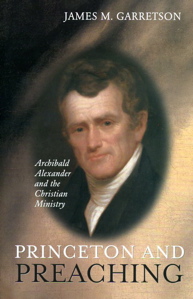 I confess that I’m rarely satisfied with contemporary books on pastoral ministry. I usually find them lacking in the gravitas our calling requires. Sure, they may have sagacity; but as gravity before God is disappearing in our time, it’s not surprising many modern treatments of the sacred office are literary cotton candy—light and hardly filling.
I confess that I’m rarely satisfied with contemporary books on pastoral ministry. I usually find them lacking in the gravitas our calling requires. Sure, they may have sagacity; but as gravity before God is disappearing in our time, it’s not surprising many modern treatments of the sacred office are literary cotton candy—light and hardly filling.

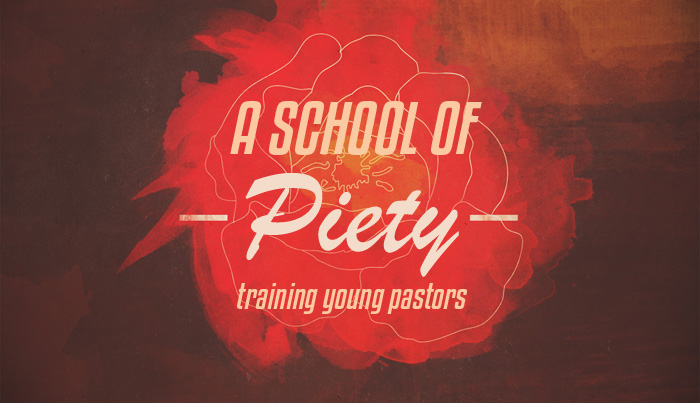
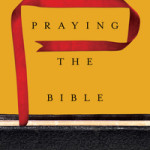 #8—Praying the Bible by Don Whitney
#8—Praying the Bible by Don Whitney #7—What Does the Bible Really Teach about Homosexuality? by Kevin DeYoung
#7—What Does the Bible Really Teach about Homosexuality? by Kevin DeYoung
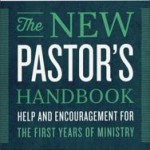






 The Bone Tree by Greg Iles
The Bone Tree by Greg Iles



